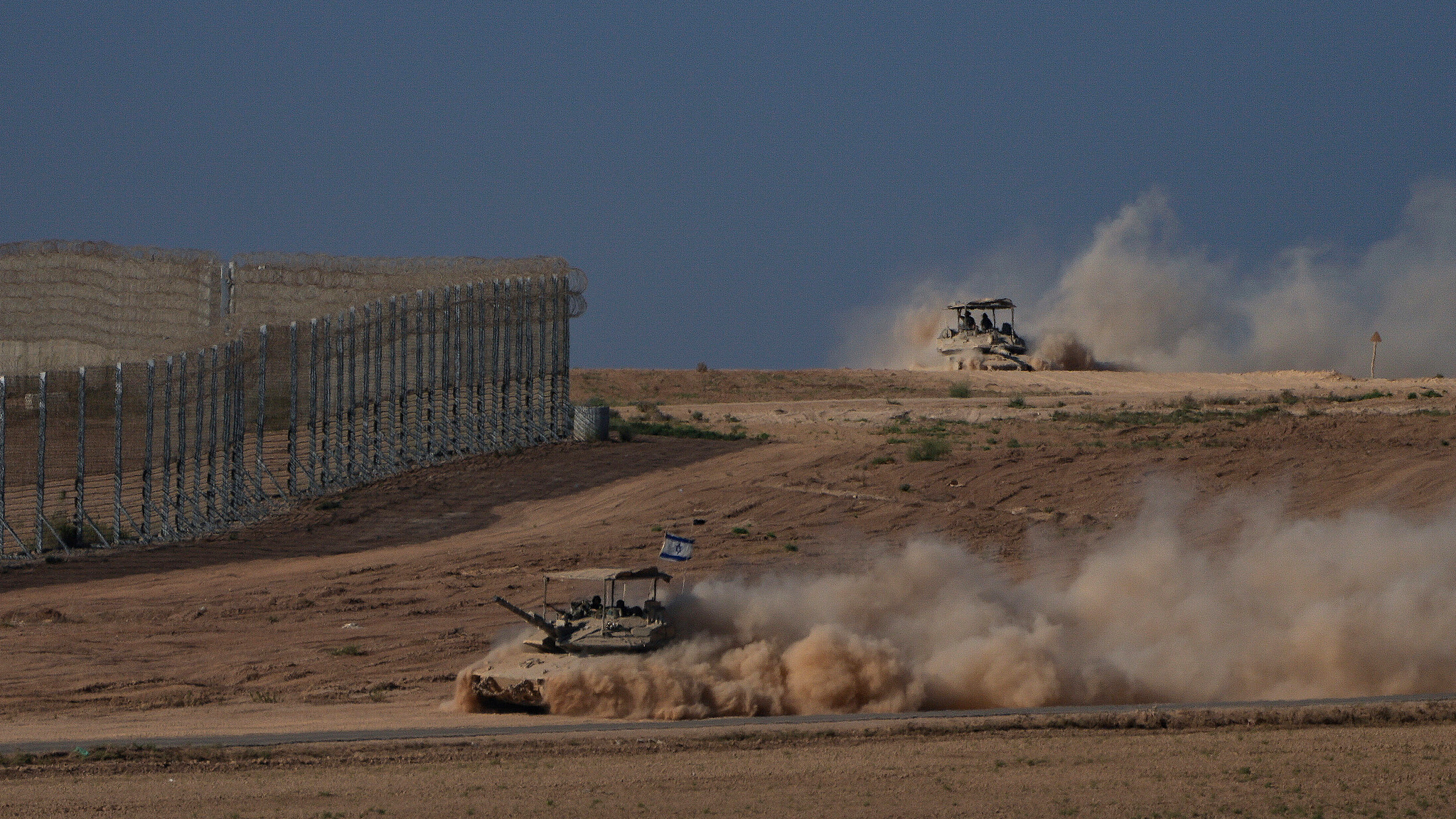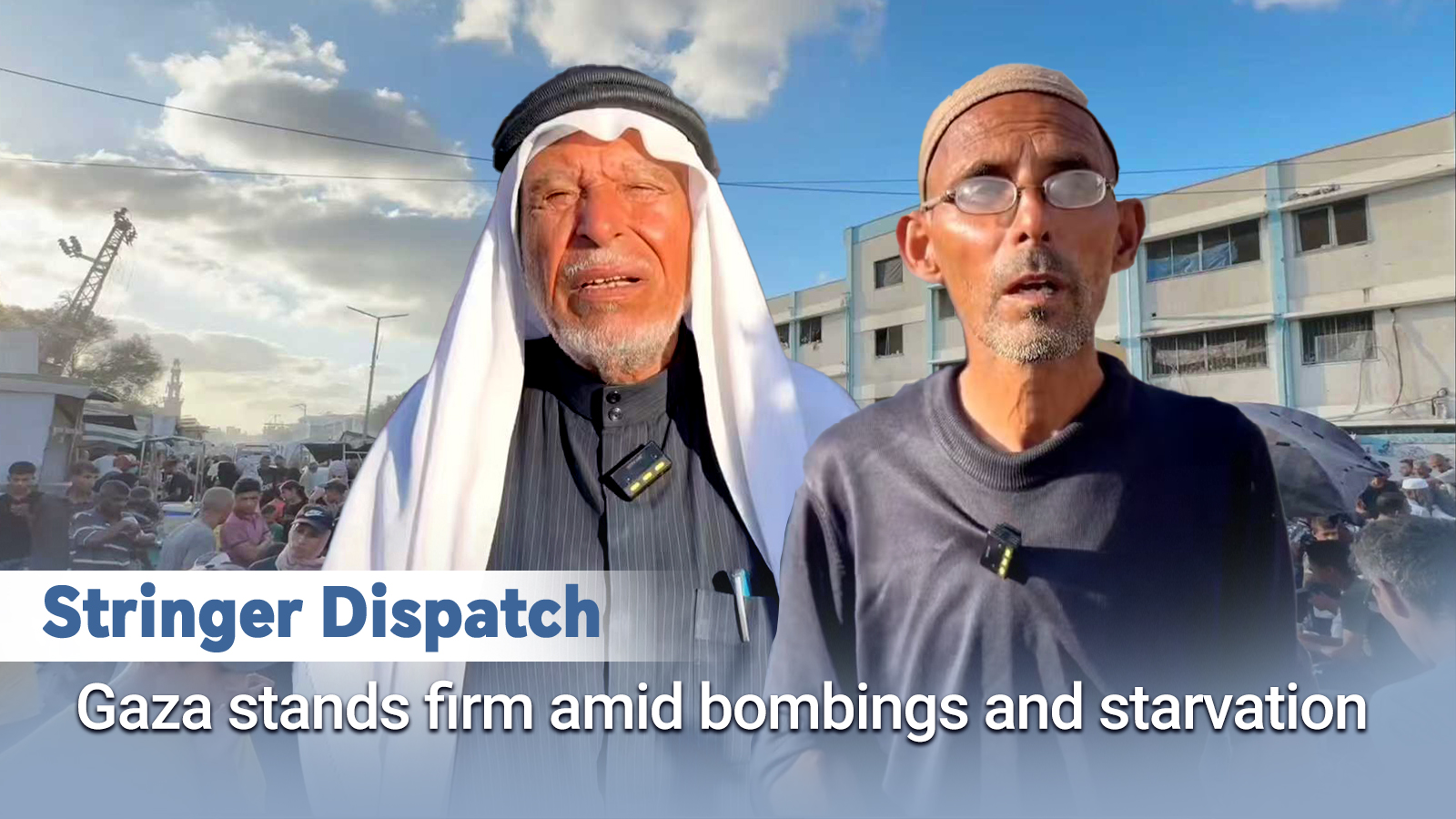
Israeli tanks move through an area near the Israeli-Gaza border, August 18, 2025. /VCG
Israel has received Hamas' response to a Gaza ceasefire proposal, which includes provisions on the release of hostages, but a formal reply to the response has not yet been issued, Xinhua reported.
Hamas and other Palestinian factions have announced their agreement to the 60-day Gaza ceasefire proposal presented by Egyptian and Qatari mediators, Hamas said in a statement on Monday.
The proposal Hamas agreed
The proposal includes the release of 10 living Israeli hostages in exchange for the release of 140 Palestinian prisoners serving life sentences and 60 others serving sentences of more than 15 years.
It also includes the entry of urgent humanitarian aid into the Gaza Strip immediately after the agreement enters into force, including fuel, water and electricity, as well as the rehabilitation of hospitals and bakeries, and the provision of rescue teams with the necessary equipment to remove rubble.
The proposal includes a temporary halt to military operations and the redeployment of Israeli forces to facilitate the entry of aid sufficient to meet the Gaza Strip's needs, Egypt's Al Qahera News TV channel reported.
Cairo and Doha will contact U.S. Special Envoy to the Middle East Steve Witkoff to advance the negotiation process with Israel, with the aim of reaching a final agreement.
Discussions on a comprehensive agreement or permanent ceasefire will begin once the truce takes effect.
Following Hamas' agreement, Israeli Prime Minister Benjamin Netanyahu said that Hamas is "under immense pressure" to accept Israel's terms for a ceasefire-for-hostage agreement.
In a video statement, Netanyahu also said he discussed with Defense Minister Israel Katz and military chief Eyal Zamir his cabinet's plan to "conquer" Gaza City and push hundreds of thousands of Palestinians further south. He did not say when the new offensive, which has drawn international criticism for its expected toll on the already devastated enclave, would begin.
02:09

Humanitarian crisis
Israel's offensive and blockade of Gaza have left much of the territory in ruins and created famine conditions.
At least 62,004 people have been killed since the war began in October 2023, according to Gaza's health authorities.
Deaths from starvation are rising daily, health officials said. As of Monday, at least 263 people, including 112 children, have died of hunger in Gaza.
Thousands of Palestinians fearing an imminent Israeli ground offensive have left their homes in eastern areas of Gaza City, now under constant Israeli bombardment, for points to the west and south in the shattered territory.
The UN Office for the Coordination of Humanitarian Affairs (OCHA) said the looming expansion of military operations in Gaza City would displace thousands of people, once again, into an overcrowded area in the south of the Gaza Strip, which is almost devoid of basic infrastructure, including water, food and medical services.
"Situation is grave in every way. Food, water, transportation – everything is a struggle," said Hamdan Al-Breem, a resident in southern Gaza.
"The situation in the Gaza Strip is beyond catastrophic," said the OCHA. "Amid ongoing hostilities and extreme hunger, more deaths are recorded every day."
The office said that to prevent such deaths, humanitarians must be able to deliver aid at scale, safely and consistently, through all available border crossings and routes to reach the population of about 2 million people.
It said restrictions on the movement of humanitarian vehicles hinder the delivery of aid to people in desperate need.
"Unimpeded humanitarian access is needed across all of Gaza, including community-based distribution and supplies entering at scale through all possible crossings and land routes," OCHA added.
(With input from agencies)
阅读原文:https://news.cgtn.com/news/2025-08-19/Israel-weighs-ceasefire-proposal-as-Gaza-humanitarian-crisis-deepens-1FXwuWiHAUo/p.html